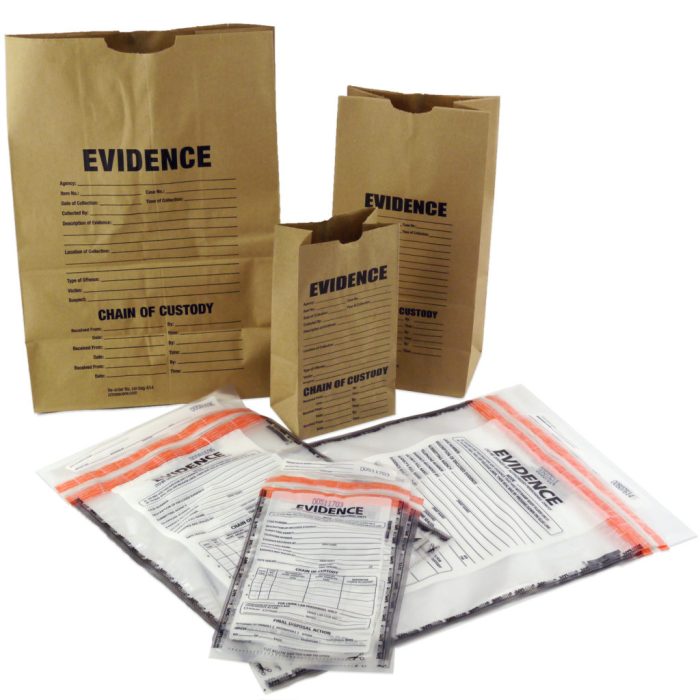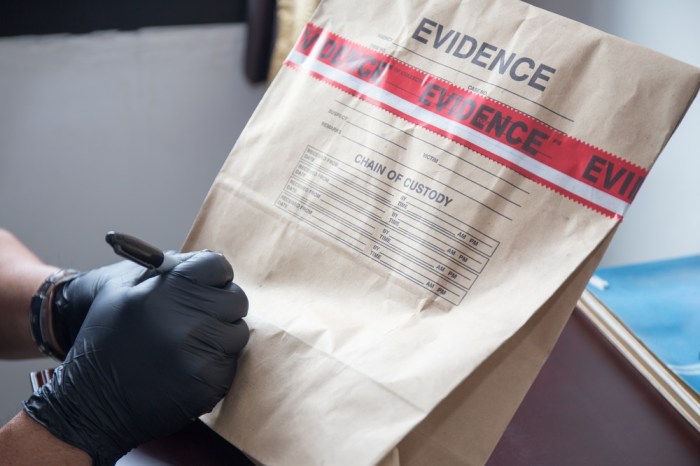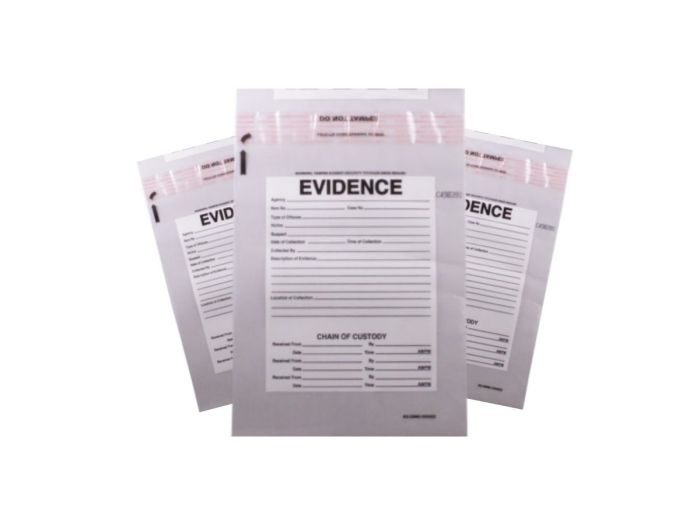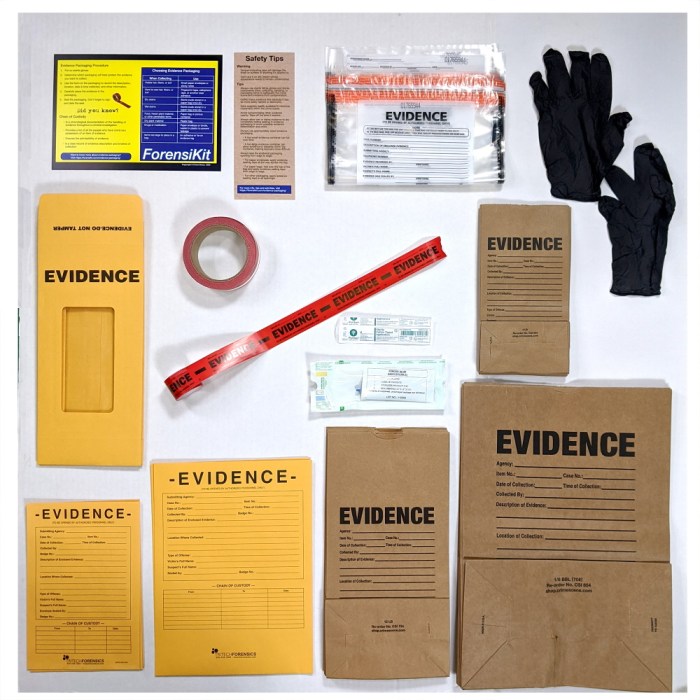An initial-response field kit does not contain evidence bags. – An initial-response field kit, a crucial component of forensic investigations, does not typically contain evidence bags. This raises questions about the proper collection and storage of evidence at crime scenes. This article delves into the reasons behind this omission, explores alternative methods for evidence collection, and discusses the legal implications and best practices associated with evidence handling in the absence of evidence bags.
Evidence Collection and Storage: An Initial-response Field Kit Does Not Contain Evidence Bags.

In forensic investigations, evidence collection and storage are crucial for preserving the integrity and admissibility of evidence in court. Evidence bags play a vital role in this process, ensuring the secure containment and protection of physical evidence from contamination, tampering, and loss.
Initial Response Field Kit Contents
An initial-response field kit is a portable set of tools and supplies used by first responders to secure and document crime scenes. While these kits typically contain essential items such as gloves, markers, and measuring tapes, they generally do not include evidence bags.
This omission is intentional, as evidence bags are bulky and can take up valuable space in a field kit. Additionally, evidence bags are not always necessary in the initial stages of an investigation, where the primary focus is on securing the scene and collecting perishable evidence.
Alternative Methods for Evidence Collection, An initial-response field kit does not contain evidence bags.
In the absence of evidence bags, alternative methods can be used to collect and store evidence. These methods include:
- Paper envelopes:Envelopes can be used to store small, flat items such as documents, photographs, or small pieces of fabric.
- Plastic bags:Clear plastic bags can be used to store larger items such as clothing, weapons, or other objects.
- Improvised containers:In some cases, improvised containers such as empty food containers or plastic wrap can be used to store evidence.
Legal Implications and Best Practices
Failing to properly collect and store evidence can have serious legal implications. Improper handling can compromise the integrity of the evidence, making it inadmissible in court. To avoid such consequences, it is crucial to follow best practices for evidence collection and storage:
- Use proper containers:Ensure that evidence is stored in appropriate containers that prevent contamination and preserve its condition.
- Label and document:Clearly label all evidence containers with the case number, date, time, and contents. Document the chain of custody to track the movement of evidence.
- Secure the scene:Secure the crime scene to prevent unauthorized access and contamination. Limit access to only essential personnel.
- Seek expert assistance:Consult with forensic experts when necessary to ensure proper evidence handling and analysis.
FAQ Section
Why are evidence bags not included in initial-response field kits?
Evidence bags are typically not included in initial-response field kits due to space constraints and the need for immediate response. These kits prioritize essential items such as gloves, flashlights, and documentation tools.
What are alternative methods for collecting evidence without evidence bags?
Alternative methods include using improvised containers such as plastic bags, envelopes, or containers that can be sealed and labeled. It is crucial to ensure the integrity and chain of custody of the evidence.
What are the legal implications of failing to properly collect and store evidence?
Improper evidence collection and storage can compromise the integrity of the evidence, potentially leading to its exclusion from court. It is essential to follow established protocols and best practices to ensure the admissibility and reliability of evidence.


